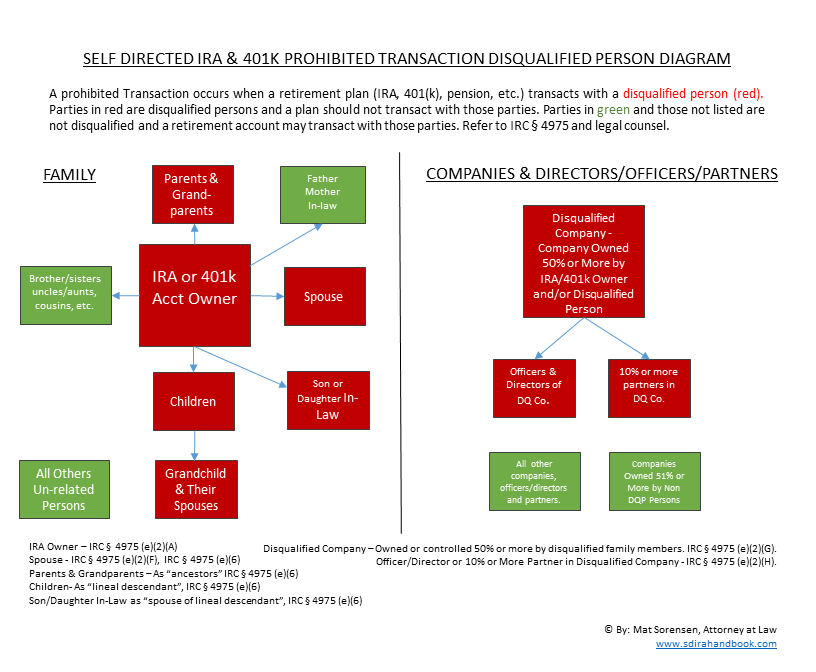By J.P. Dahdah, Founder & CEO of Vantage
 A prohibited transaction occurs when a retirement plan (e.g. self directed IRA or 401k) transacts with a disqualified person. IRC § 4975. A transaction is pretty easy to identify and is defined in the code as a sale, lease, exchange, payment, or other transfer of money from a retirement plan. If that transaction is with a disqualified person then the retirement plan has engaged in a prohibited transaction. The consequence of a prohibited transaction for an IRA is distribution of entire IRA while the consequence to a 401(k) or other employer based plan is a 15% excise tax on the amount involved and an additional 100% penalty if the transaction is not corrected. Regardless of the type of retirement account you are self-directing, the consequences are significant. IRC § 4975 (c)(3), IRC § 408 (e)(2)(A). IRC § 4975 (a),(b).
A prohibited transaction occurs when a retirement plan (e.g. self directed IRA or 401k) transacts with a disqualified person. IRC § 4975. A transaction is pretty easy to identify and is defined in the code as a sale, lease, exchange, payment, or other transfer of money from a retirement plan. If that transaction is with a disqualified person then the retirement plan has engaged in a prohibited transaction. The consequence of a prohibited transaction for an IRA is distribution of entire IRA while the consequence to a 401(k) or other employer based plan is a 15% excise tax on the amount involved and an additional 100% penalty if the transaction is not corrected. Regardless of the type of retirement account you are self-directing, the consequences are significant. IRC § 4975 (c)(3), IRC § 408 (e)(2)(A). IRC § 4975 (a),(b).
Often times, a disqualified person is generically referred to as a…read more
